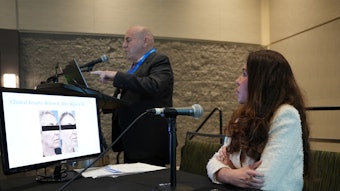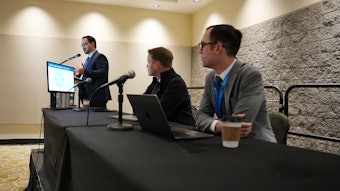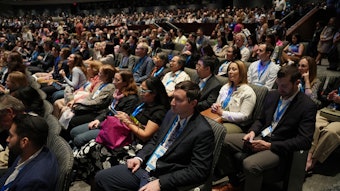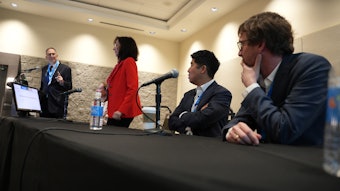Creating a holistic reference map of human cells
Aviv Regev, PhD, MSc, was recognized for her work cataloging all types and subtypes of cells in the body.

The 2025 Lila and Murray Gruber Memorial Cancer Research Award and Lectureship honors physician-scientists for advancements in cancer research and provides a forum for the enrichment of knowledge of dermatologists in this important scientific field. This year’s recipient, Aviv Regev, PhD, MSc, presented “From Cell Atlases to Medicines with AI” in Sunday’s Plenary session.
Dr. Regev, who is head and executive vice president of Genentech Research and Early Development, described her research profiling the molecular circuits that govern cells, tissues, and organs in health and their malfunction in disease. Different kinds of tumors, such as breast cancer, lung cancer, or melanoma, are made up of a complex ecosystem of malignant and microorganism cells that are molecularly integrated.
“This complexity means we have an enormous problem of scale. There are more than 100 cancer types, millions of patients, and more than 10,000 driver mutations, and it’s our collective mission to understand them all to treat cancer and any common disease,” Dr. Regev said.
Dr. Regev is also founding co-chair of the Human Cell Atlas, a global consortium that is mapping every cell type in the human body to create a three-dimensional atlas of human cells that transforms our understanding of biology and disease. She and her international team of biologists, clinicians, technologists, physicists, computational scientists, software engineers, and mathematicians are collectively developing foundational experimental and computational methods in single cell and spatial genomics to enable a greater understanding of circuits and function of cells and tissues in health and disease.
During her presentation, Dr. Regev shared insights gleaned from the large-scale data she and her team have worked systematically to collect during the last several years across many different types of tumors.
The Human Cell Atlas, she predicted, is likely to lead to major advances in the way illnesses are diagnosed and treated and has the potential to transform our approach to biomedicine by helping to identify markers and signatures for different diseases, uncovering new targets for therapeutic intervention, and providing direct view of human biology in vivo.
“Using an algorithm, we can discover patterns for good representations that show us biological effects, or dynamic patterns like differentiation or pathogenesis when they find cooperation across variables,” she said. “When the quantity of the data grows large enough, it becomes a new type of quality data.”











